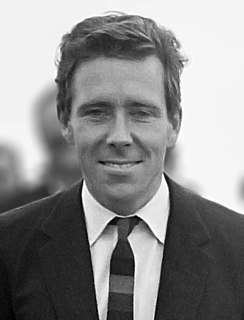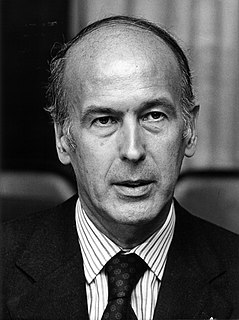A Quote by Ben Elliot
There are a lot of laws from Europe about employing people which are absolute nonsense.
Related Quotes
Hudibras has defined nonsense, as Cowley does wit, by negatives. Nonsense, he says, is that which is neither true nor false. These two great properties of nonsense, which are always essential to it, give it such a peculiar advantage over all other writings, that it is incapable of being either answered or contradicted.
Often I hear people say they do not have time to read. That's absolute nonsense. In the one year during which I kept that kind of record, I read twenty-five books while waiting for people. In offices, applying for jobs, waiting to see a dentist, waiting in a restaurant for friends, many such places.
The laws of thought are natural laws with which we have no power to interfere, and which are of course not to be in any way confused with the artificial laws of a country, which are invented by men and can be altered by them. Every science is occupied in detecting and describing the natural laws which are inflexibly observed by the objects treated in the Science.
You can't relate to an absolute or it wouldn't be absolute, it would be relative. On an intellectual level, that's easy. However, you hear theologians in the theistic traditions talk about absolute God, and I saw God, or God spoke; speaking, being seen, these are all relational things. So what is absolute about such a being, wouldn't actually be absolute.
That was the reason why very few people fleeing the rise of fascism in Europe, especially in Germany, could get to the United States. And there were famous incidents like with the MS Saint Louis, which brought a lot of immigrants, mostly Jewish, from Europe. It reached Cuba, with people expecting to be admitted to the United States from there. But the administration of Franklin D. Roosevelt wouldn't allow them in and they had to go back to Europe where many of them died in concentration camps.
When I pick a story, I'm very much aware of the larger issues that it's illuminating. But one of the things that I, as a writer, feel strongly about is that nobody is representative. That's just narrative nonsense. People may be part of a larger story or structure or institution, but they're still people. Making them representative loses sight of that. Which is why a lot of writing about low-income people makes them into saints, perfect in their suffering.
Laws, it is said, are for the protection of the people. It's unfortunate that there are no statistics on the number of lives that are clobbered yearly as a result of laws: outmoded laws; laws that found their way onto the books as a result of ignorance, hysteria or political haymaking; antilife laws; biased laws; laws that pretend that reality is fixed and nature is definable; laws that deny people the right to refuse protection. A survey such as that could keep a dozen dull sociologists out of mischief for months.



































